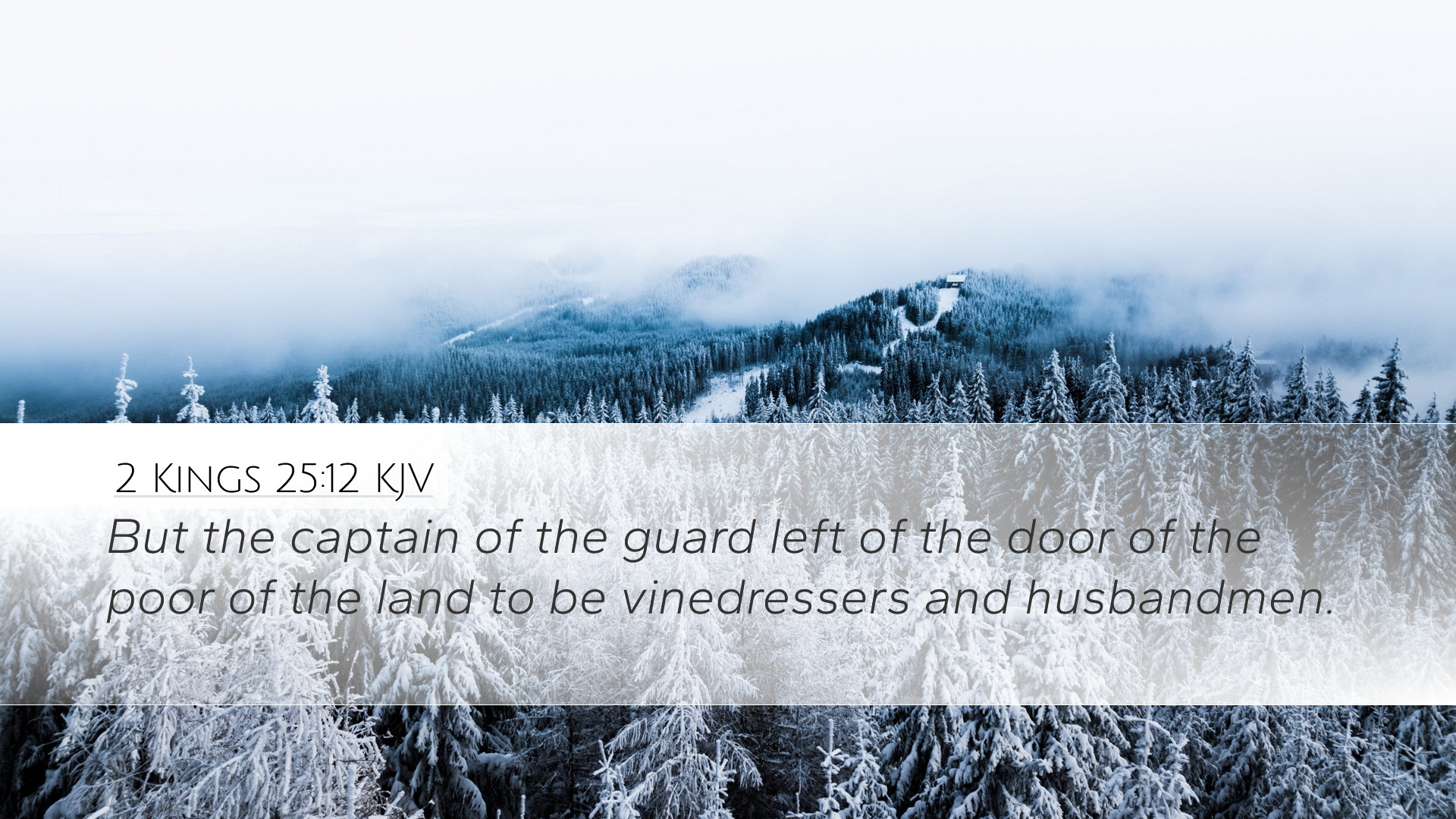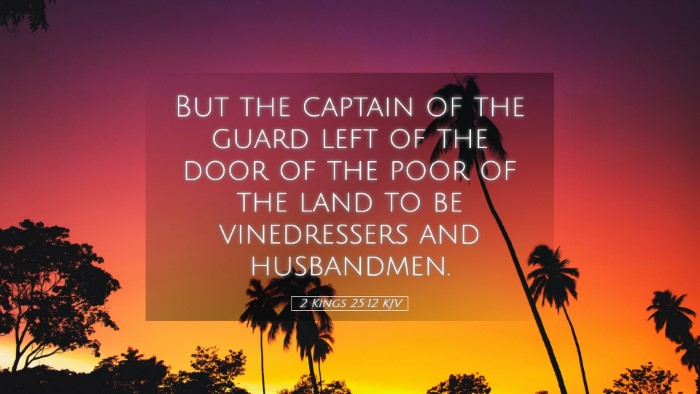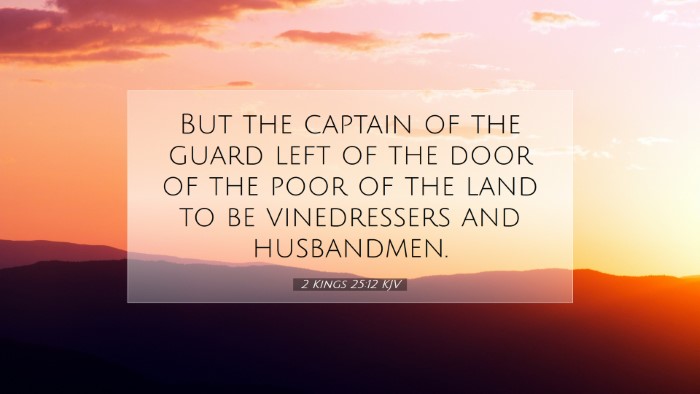Commentary on 2 Kings 25:12
2 Kings 25:12 states, "But the captain of the guard left some of the poor of the land to be vinedressers and husbandmen." This verse embodies profound themes of mercy, preservation, and the contrast between devastation and hope amidst exile.
Contextual Background
The context of this passage is crucial for understanding its implications. The fall of Jerusalem is a pivotal moment in Jewish history, marking the end of the kingdom of Judah and the beginning of a long period of Babylonian exile. This chapter recounts the siege, destruction, and deportation that followed, detailing the severity of the punishment meted out to the people of Israel for their persistent disobedience to God.
Insights from Matthew Henry
Matthew Henry notes that the actions of the Babylonian captain reflect not just cruelty, but also a degree of strategy and foresight. By leaving the poor behind, he created a remnant that could cultivate the land. This act of preserving the agricultural backbone of the land amid destruction suggests a divine providence at work, ensuring that a seed of revival remains even in desolation.
- Divine Mercy: Henry emphasizes that God, even in judgment, does not utterly forsake His people. The preservation of the poor indicates that God’s promises to Israel are still in play; He will continue to sustain them.
- Restoration Theme: Henry also connects this with the theme of restoration after judgment. The vinedressers and husbandmen symbolize hope for future prosperity and renewal of the land, which God can regraft His people into.
Insights from Albert Barnes
Albert Barnes elaborates on the significance of the captain’s decision to leave some of the poor. He explains that the poor were often those who lacked the means to resist the army, and in a sense, their survival symbolizes the spiritual remnant that remains faithful amidst turmoil.
- Economic Implications: Barnes notes that leaving the vinedressers and husbandmen behind served a practical purpose—it allowed the land to continue producing, which would benefit the Babylonian rulers. This illustrates a pragmatic approach even in foreign conquests.
- Spiritual Insights: Barnes also draws a parallel to the New Testament, citing how God often chooses the humble and the lowly to further His plans. This verse foreshadows how God preserves a remnant for His glory.
Insights from Adam Clarke
Adam Clarke provides a poignant reflection on the societal implications of this act. He argues that these “poor” people represent the disenfranchised who are often left in the margins of society.
- Social Justice: Clarke emphasizes that the care for these individuals is a call to social responsibility. Churches and leaders are reminded of their duty to advocate for the marginalized, drawing from this biblical account.
- God’s Sovereignty: Clarke also affirms that God’s sovereignty prevails even when it appears that everything is lost. The continuity of life through the few left behind signifies God’s overarching control and plan for restoration.
Theological and Practical Applications
This verse, while appearing simple, has profound theological implications that resonate with pastors, students, and theologians alike:
- Hope Amidst Despair: The preservation of the poor speaks to the resilience of hope in seemingly hopeless situations, encouraging leaders to seek and nurture hope within their communities.
- Remnant Theology: This verse informs the concept of the remnant—the faithful few whom God uses for His purposes. It encourages believers to recognize their identity as part of this divine remnant.
- Call to Action: The temporary abandonment of the poor calls for proactive engagement by the church in addressing social inequalities and providing care for those who are marginalized.
Conclusion
In summary, 2 Kings 25:12 encapsulates a moment of both judgment and mercy, revealing God's continual engagement with His people even amid devastation. The insights drawn from the commentaries of Matthew Henry, Albert Barnes, and Adam Clarke emphasize that while human actions may lead to destruction, God's purpose and preservation remain intact. This encourages a theological reflection on hope, justice, and the unfolding narrative of God's redemptive work throughout history.


